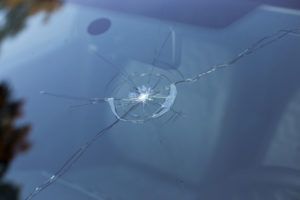
Car repairs can be costly, and nobody would blame you for putting off a non-essential repair until you’re in a more financially stable position. However, some repairs need to be made as soon as possible, because their malfunction could be jeopardizing your safety or the safety of others. For example, you need to get your lights replaced as soon as possible if they go out, because an improperly functioning light a hazard and is probable cause to conduct a traffic stop and issue a citation.
But what if the car repair in question is more interpretive in whether or not it’s jeopardizing your safety or the safety of others? Can police still stop you? We’re talking specifically about cracked windshields, and the state courts recently issued a ruling on the matter.
Stopped For A Cracked Windshield
Before we dive into this recent case, let’s take a look at the law on the books in regards to driving with a cracked windshield. The law states that a person may not operate a vehicle with a cracked or discolored windshield to an extent that it limits or obstructs proper vision. It sounds pretty straightforward, in that you can drive with a cracked windshield as long as it doesn’t obstruct your vision, but you may be surprised to learn how the case played out in court.
The case in question was Poehler v. State of Minnesota. Poehler was originally stopped by a police officer who reported that he noticed Poehler was driving with a cracked windshield, and the subsequent traffic stop revealed that he wasn’t wearing a seat belt and that he was under the influence of alcohol. Poehler was ultimately charged with DWI.
Since the police officer’s incident report only noted that Poehler was driving with a cracked windshield, and it stated nothing about whether the crack obscured Poehler’s vision, his defense team wanted the charges dropped, claiming that the traffic stop was invalid. The three panel Court of Appeals agreed with Poehler’s argument that a windshield crack in and of itself does not justify a traffic stop.
In the ruling, Judge Kevin Ross wrote, “This is the first case where we are asked whether every windshield crack of any extent justifies a police stop under the obstructed-vision statute. Our answer is ‘no’. A person violates the statute only by driving with a windshield crack that, because of its characteristics, such as its location and its size, severity, or shape, limits or obstructs the driver’s vision.”
Prosecutors argued that it was impossible for the officer to know if the crack impeded the driver’s vision without conducting a stop, but Ross stated that that’s a slippery slope argument, comparing it to an officer who knows that a driver has alcohol in their system. They don’t know how much alcohol the driver consumed, but simply knowing that the driver has consumed alcohol or witnessing them leaving a bar does not reach the threshold for probable cause to conduct a traffic stop. More evidence or witnessing a traffic violation is required.
So based on the judge’s holding, Poehler won his case, right? Wrong. The judge wrote that the stop was valid because he wasn’t wearing a seat belt. And get this – even if Poehler was wearing a seat belt, the court stated they would have ruled the traffic stop valid because the US Supreme Court has previously ruled that “searches and seizures made on mistake of fact can still be reasonable in nature.” Essentially they are saying that even if the cop was mistaken in believing that the crack obstructed the driver’s view, the subsequent traffic stop made in good faith led to enough evidence to pursue valid charges.
In other words, although you can legally drive with a cracked windshield that doesn’t obstruct your view, don’t be surprised if police pull you over.





